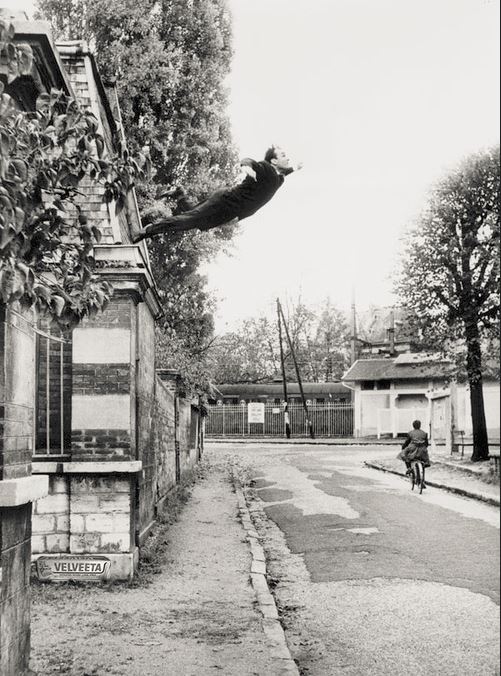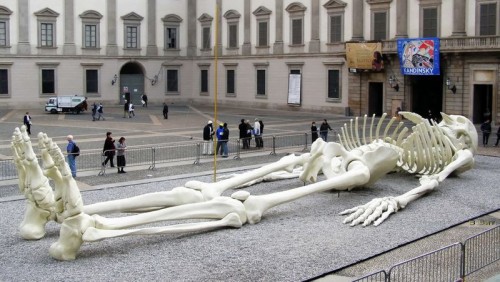28 points: Sum by David Eagleman
- David Eagleman doesn’t have a PhD in Creative Writing; he has a PhD in neuroscience. He “runs a lab,” a known euphemism for being really smart or well-connected or crazy. Like many of us, he is best known for his work on time perception, synesthesia, and neurolaw. I think people should be good at one thing, or none. For example, Lindsey Vohn I wouldn’t tolerate as a neighbor. She is a gold medalist/world champion downhill skier AND has a body like a manifesto, hair of poured honey, and incredible access to the drug stash of Tiger Woods. This seems a bit unfair.
- Sum is a flash fiction collection. Forty flash fictions. Forty is a holy number but I’m not sure that’s relative here. (I hate when people use relative when they mean relevant. Several students I don’t admire overuse the term, stench. I have no idea why.)
- Sum is a best seller and is published in about 30 languages, so if you contemplate flash fiction as a variety of minor genre, a weed, per say, you can stick it, or you can keep on thinking it, both are fine. Do what you want to do. This life isn’t a dress rehearsal, now is it?
- Death and science make sense together, like peanut butter and bread, marriage and secret email accounts, etc. They merge. Science shows us that everything is heading to a worse state. Clean your room on Monday and check it out on Friday. It will be messier (unless you add work/energy, but even then soon as you stop adding work/energy/calories, the first dust mote settles and the room heads towards disorder once again…). We are all becoming messier, day by day.

- More and more we get these flash fiction collections.
- This one
- Or this one.
- Or for example, Facebook.
- Ha, ha…groan.
- Every flash by David Eagleman has one subject: the afterlife.
In the afterlife you relive all your experiences, but this time with the events reshuffled into a new order: all the moments that share a quality are grouped together. You spend two months driving the street in front of your house, seven months having sex. You sleep for thirty years without opening your eyes. For five months straight you flip through magazines while sitting on a toilet.
Ekphrasis Flash
There used to be some CW pedagogy on here. Maybe there still is, I don’t know. Been away for a few days. My microwave died recently, etc. Anyway, I just remember a lot of people didn’t like it or something, so I thought I would go ahead and add some more.
Ekphrasis sounds like a skin disorder, but is actually when one medium of art attempts to relate to another medium. Like dancing about architecture or fucking about radishes, for example, etc. This can be a fructiferous exercise for a class (or workshop or, you know, just a group of people who like to write [It’s Ok to write just because you like to write, just like it’s OK to run just because, you know, you like to run or collect cats or whatever]). This exercise is ofttimes done with poetry and that’s OK I suppose, but I’d prefer you tried this exercise with flash fiction.
I’ll define flash fiction as under 750 words, since defining the genre any other way—by style, history, worldview—is reductive and wrong.
You’d probably want to show an example. An example actually cracks open the synapses. In fact, writing directly after an example (not with a lag) is a little teacher trick I’ll pass onto you. Sort of like your knowledge is lighter fluid and imagine your students have heads made of charcoal. Pour a little knowledge on their heads. Then toss in the match. The match is writing. This analogy is pretty forced, but it makes a shard of sense.
If you want to use the word “multi-media” on your salary review document, you could show this video, an ekphrasis by Pamela Painter:
Now you can say, “I like to use multi-media in my class…”
Cow
While I was traveling on the train the other day, I suddenly stood up, happy on my own two feet, and began to wave my hands with joy and invite everyone to look at the scenery and see the twilight that was really glorious. The women, the children, and some gentlemen who interrupted their conversation all looked at me in surprise and laughed; when I quietly sat down again, there was no way for them to know what I had just seen at the side of the road: a dead, a really dead cow moving past slowly with no one to bury her or edit her complete works or deliver a deeply felt and moving speech about how good she had been and all the streams of foaming milk she had given so that life in general and the train in particular could keep on going.
-Augusto Monterroso
Meg Pokrass Damn Sure Right Interview!
Q: Sans enunciation/emphasis or other context, your title Damn Sure Right is open-ended: braggadocio or bluster, surprise or satisfaction—and so on. The person on the cover photo is “dressed to kill” (my words), yet is also more than half hidden. What is your idea concerning the title and the cover image?
A: The title comes from an utterance in the story “Damn Sure Right”. The full utterance is, “He didn’t need to hurt her, damn sure right.”
My characters are often groping for a concrete way to see things in order to feel better.
To me, the cover photo reflects vulnerability mixed with stalwart determination. Press 53 publisher, Kevin Morgan Watson found the image, ran it past me and we were in instant agreement.
Q: Will you discuss “The Serious Writer and Her Pussy”?
Concept Flash
The Concept Flash is not about an emotion (that would be expressionism, aka Kafka), but rather something larger, an idea.
The idea is then set, into concrete.
The logic of the idea follows the dialectic of the concept. This can assist you, in a structural sense, or even with the setting, characterization, narrative, etc. The attributes of the concept can be appropriated for technique within the flash. The concept flash is infinite in its manner. You could write a lifetime of these: ideas in our lives represented as things. Stop digging holes with your fingers. I am offering a type of shovel. OK, a spoon.
Will you shut up and provide an example?
Yes, I will provide an example.
Cube by Amelia Gray.
Do You Know?
What is a prose poem, a flash fiction? They are both bastardy forms. Fuck, they should be hanging out. Simpatico, I feel. Or at least enough I walk your toad, you walk mine. Fueled on hops and piss. I guarantee you Max Jacobs would have bought. both forms a dank. aperitif. Hell, so would Kim Chinquee. But, noooooooooooo. So. So. Tell me. What is the difference? Fire away.
Flash 14
1. Ken Sparling. 2. Stace Budzko. 3. Kim Chinquee 4. Elysia Smith. 5. Shya Scanlon 6. Aimee Nezhukumatathil 7. Mark Ehling.
8. Damian Dressick. 9. Jac Jemc. 10. Peter Gradbois 11. David Shumate. 12. Jesse Goolsby. 13. Caroline Zilk. 14. Molly Gaudry.
Suggested Pairings: Icehouse and Meg Pokrass/Cooper Renner
httpv://www.youtube.com/watch?v=Zu0uOONkX-E
As I rule I suggest you marry yourself first. Take a moment. OK. Today we will marry a chapbook with a domestic beer.
“Lost and Found” (elimae stories) is glow for the hammock, though I suggest an older model, one swaying for seasons and made of fishing line—as in cutting into flesh–and below it a brush pile with a brown rat you name Brown Rat. You feed Brown Rat crumbling Cheetos. I think these flashes are fragile, about to collapse, falling, as in you/me/us…They disintegrate you forward.
She’s ruined this before.
Abfulled Plank Road (Miller) since 1885, Icehouse pours to a golden yellow, basically the color of human urine in the later stages of renal failure, but don’t let my description (sorry, former RN here) put you off your feed. You probably have some hazy nostalgia—possibly college, a dorm room bathtub full of ice and balthazars of beer?
“I’m not very modern, I’m afraid,” she said.
Outdated things make me sad, like the word, “howdy.”






